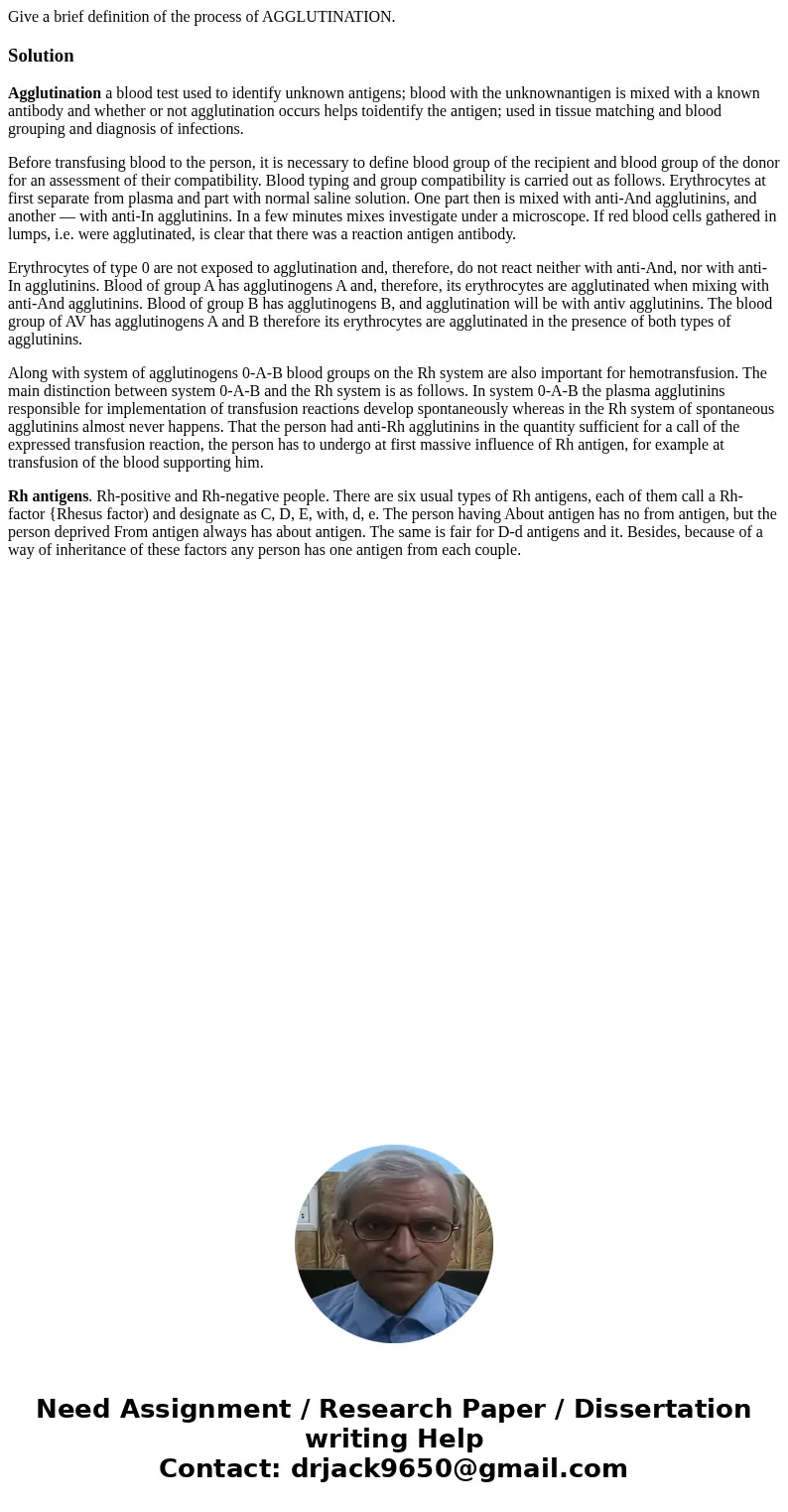Give a brief definition of the process of AGGLUTINATIONSolut
Give a brief definition of the process of AGGLUTINATION.
Solution
Agglutination a blood test used to identify unknown antigens; blood with the unknownantigen is mixed with a known antibody and whether or not agglutination occurs helps toidentify the antigen; used in tissue matching and blood grouping and diagnosis of infections.
Before transfusing blood to the person, it is necessary to define blood group of the recipient and blood group of the donor for an assessment of their compatibility. Blood typing and group compatibility is carried out as follows. Erythrocytes at first separate from plasma and part with normal saline solution. One part then is mixed with anti-And agglutinins, and another — with anti-In agglutinins. In a few minutes mixes investigate under a microscope. If red blood cells gathered in lumps, i.e. were agglutinated, is clear that there was a reaction antigen antibody.
Erythrocytes of type 0 are not exposed to agglutination and, therefore, do not react neither with anti-And, nor with anti-In agglutinins. Blood of group A has agglutinogens A and, therefore, its erythrocytes are agglutinated when mixing with anti-And agglutinins. Blood of group B has agglutinogens B, and agglutination will be with antiv agglutinins. The blood group of AV has agglutinogens A and B therefore its erythrocytes are agglutinated in the presence of both types of agglutinins.
Along with system of agglutinogens 0-A-B blood groups on the Rh system are also important for hemotransfusion. The main distinction between system 0-A-B and the Rh system is as follows. In system 0-A-B the plasma agglutinins responsible for implementation of transfusion reactions develop spontaneously whereas in the Rh system of spontaneous agglutinins almost never happens. That the person had anti-Rh agglutinins in the quantity sufficient for a call of the expressed transfusion reaction, the person has to undergo at first massive influence of Rh antigen, for example at transfusion of the blood supporting him.
Rh antigens. Rh-positive and Rh-negative people. There are six usual types of Rh antigens, each of them call a Rh-factor {Rhesus factor) and designate as C, D, E, with, d, e. The person having About antigen has no from antigen, but the person deprived From antigen always has about antigen. The same is fair for D-d antigens and it. Besides, because of a way of inheritance of these factors any person has one antigen from each couple.

 Homework Sourse
Homework Sourse